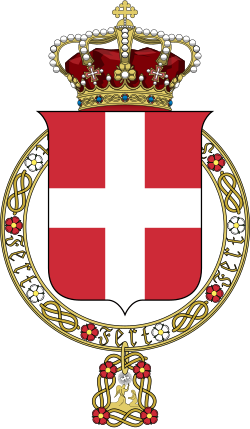Depretis I government | |
|---|---|
| 15th Cabinet of Italy | |
 | |
| Date formed | 25 March 1876 |
| Date dissolved | 25 December 1877 |
| People and organisations | |
| Head of state | Victor Emmanuel II |
| Head of government | Agostino Depretis |
| Total no. of members | 9 |
| Member party | Historical Left |
| History | |
| Predecessor | Minghetti II Cabinet |
| Successor | Depretis II Cabinet |
The Depretis I government of Italy held office from 25 March 1876 until 25 December 1877, a total of 650 days (1 year and 9 months). [1]
